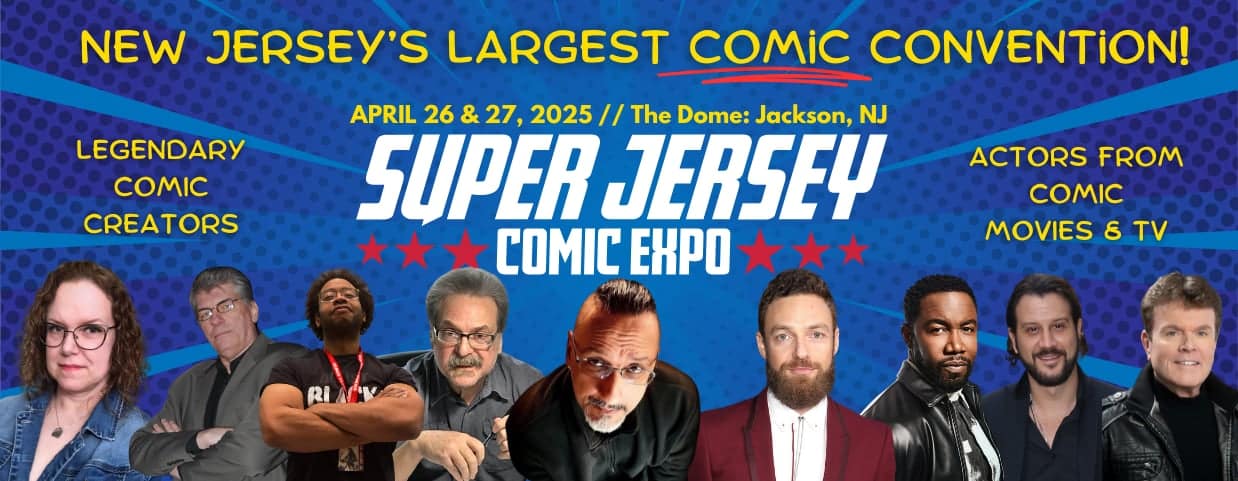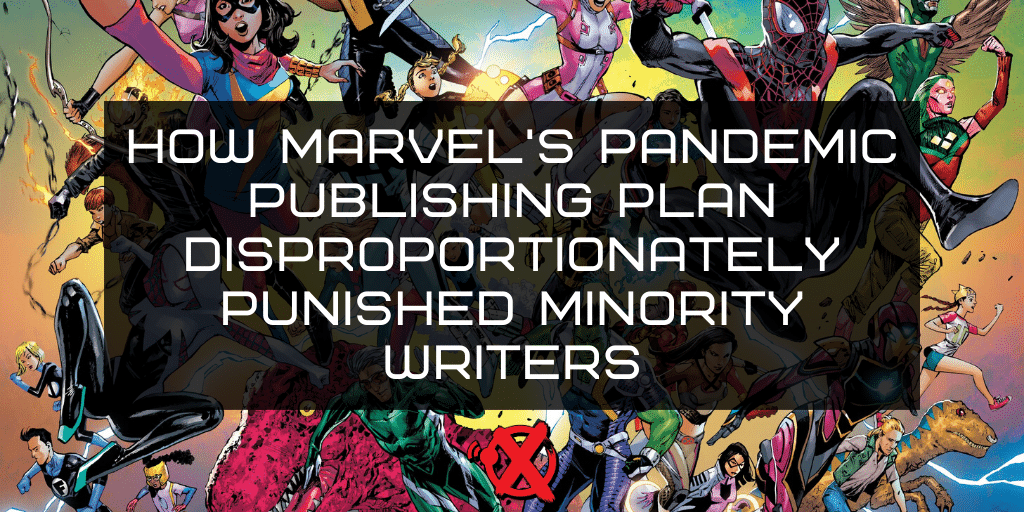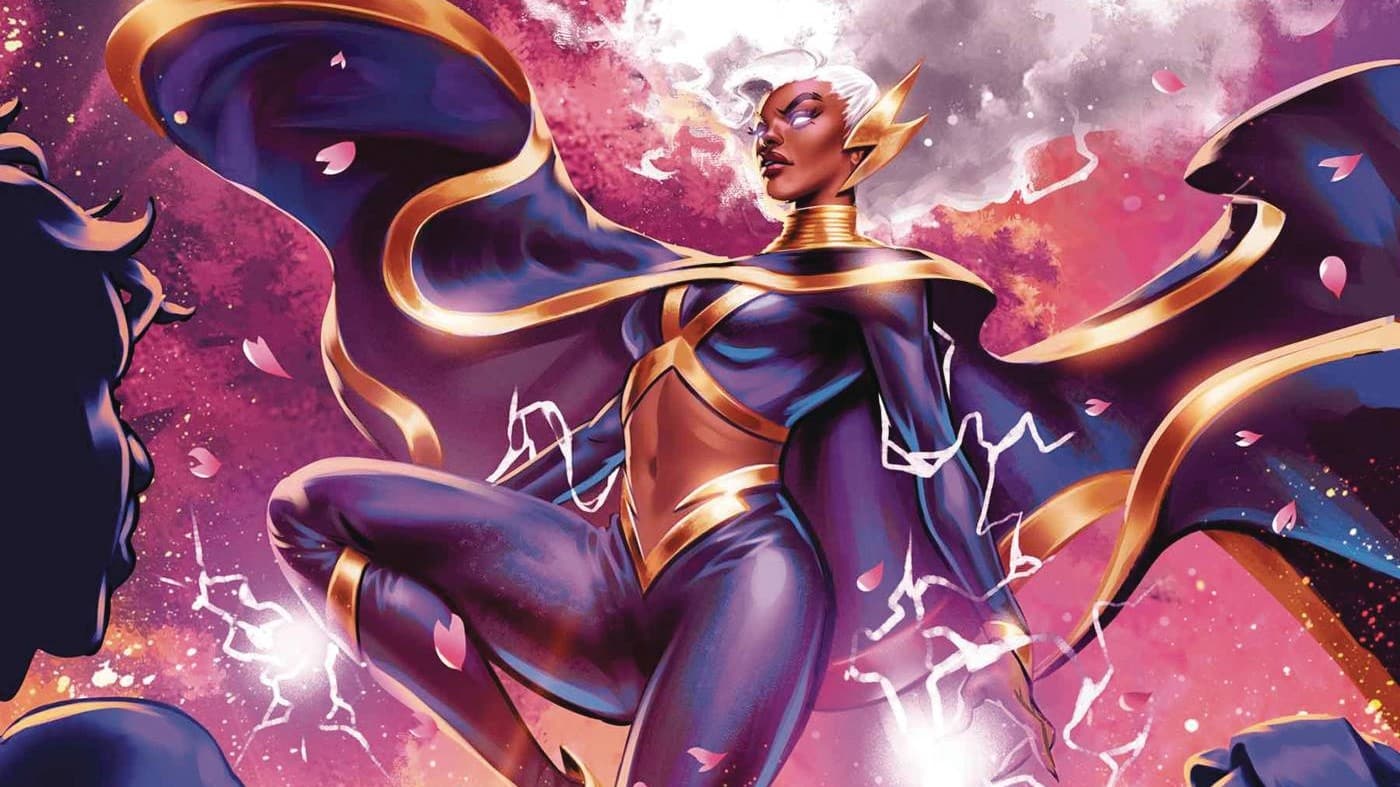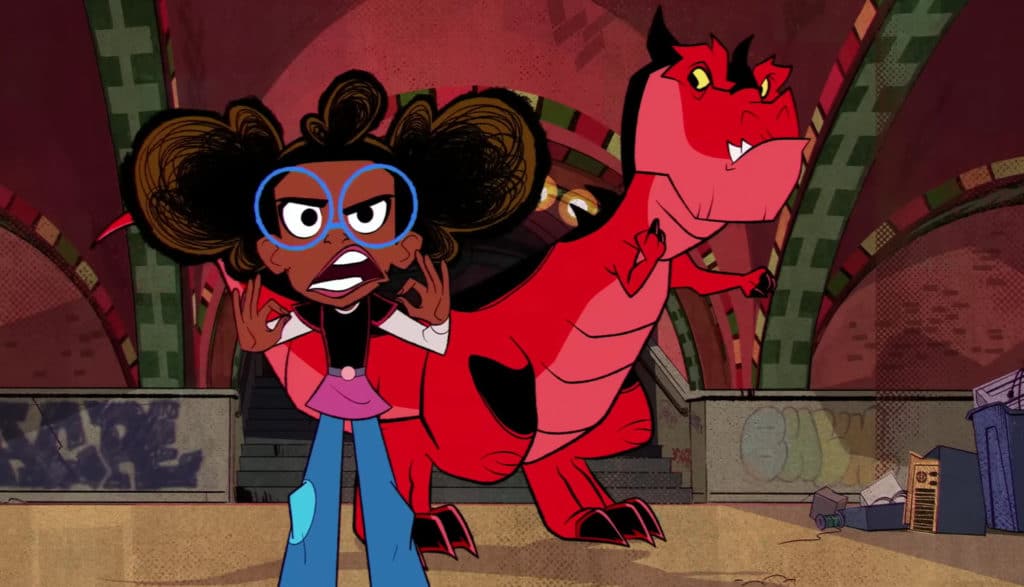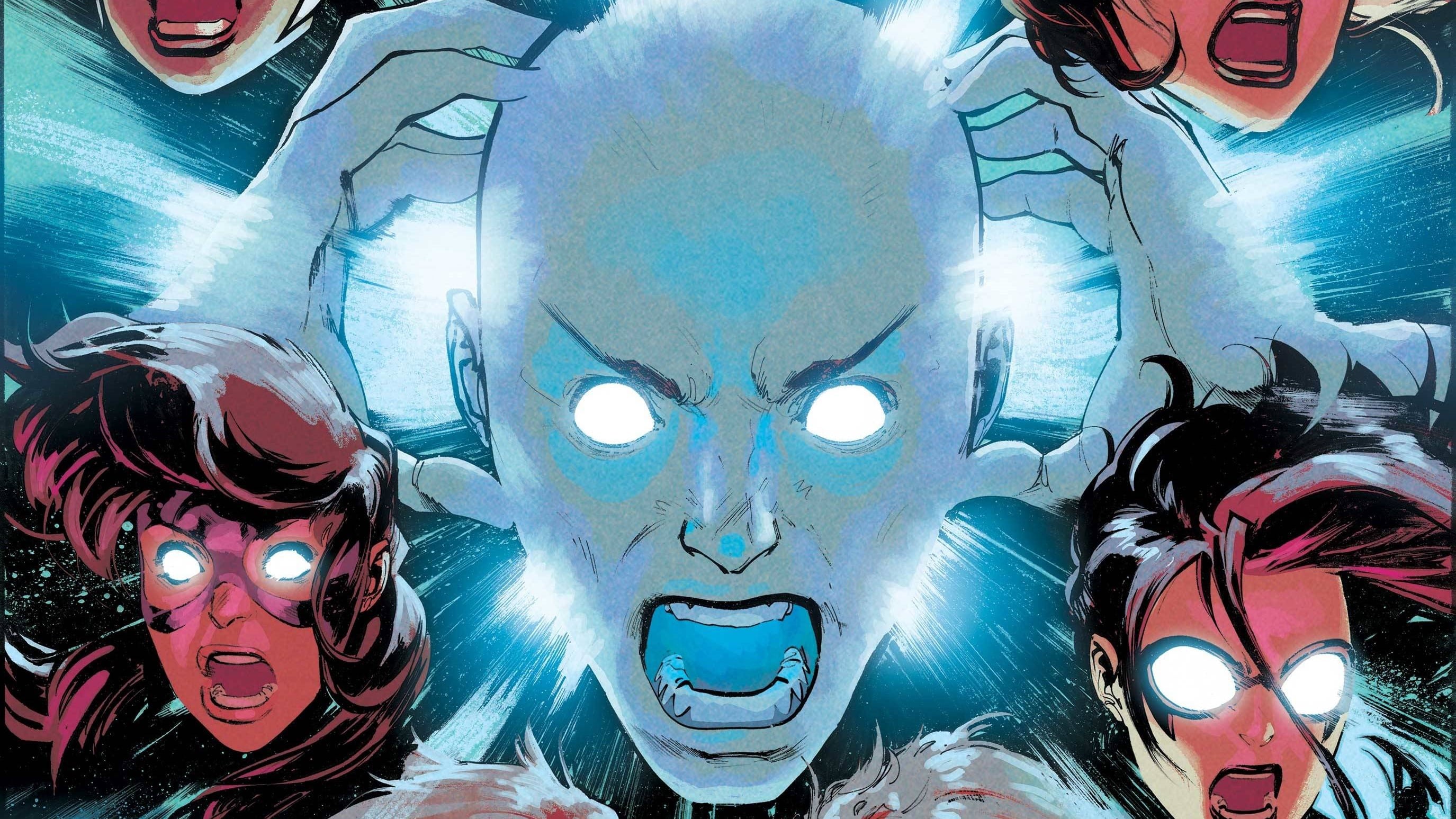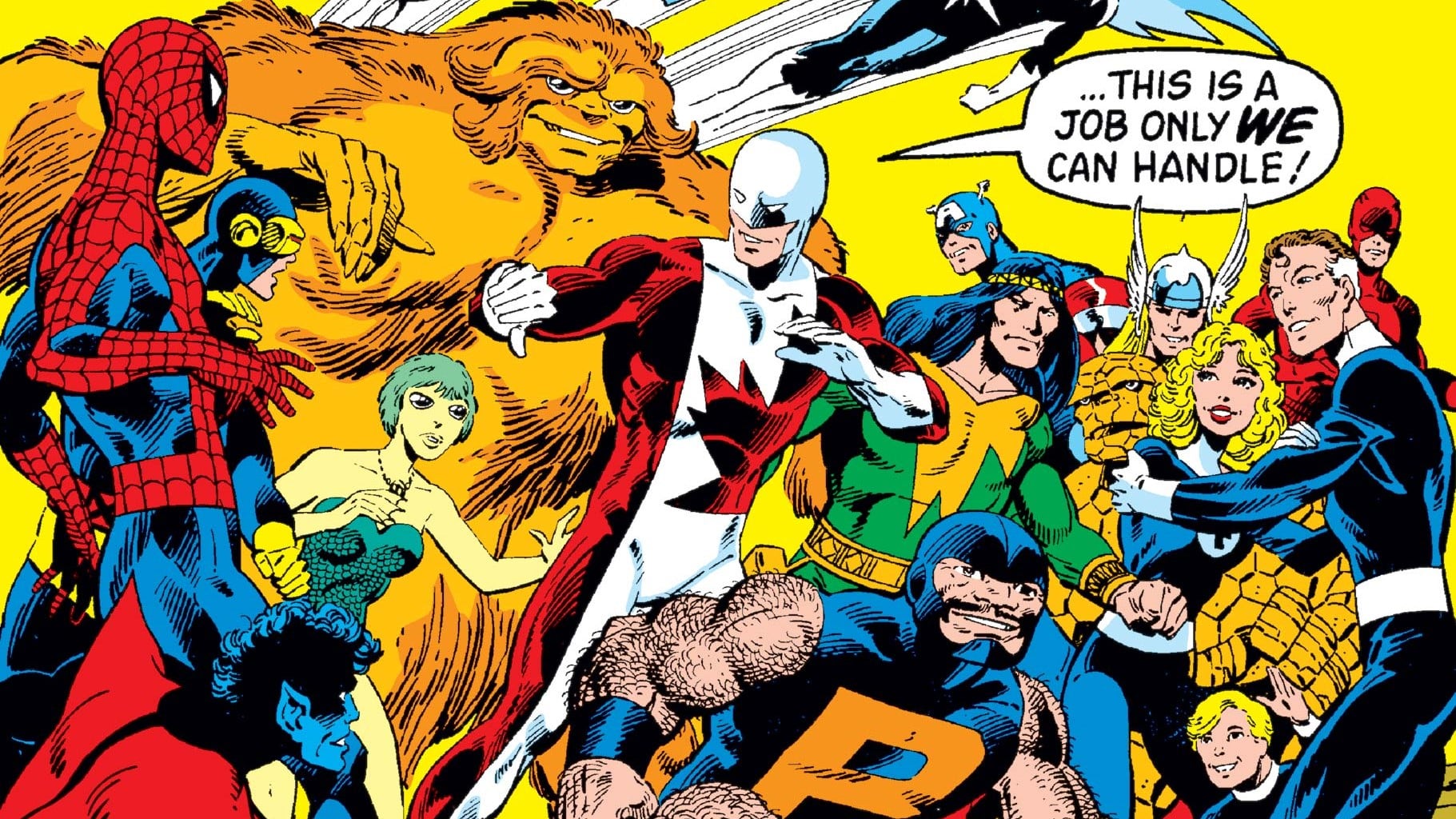On March 23, Diamond Comic Distributors halted shipment to comic shops as a response to the mass shutdown stemming from the COVID-19 pandemic. Under the circumstances, this was unavoidable.
However, much has been written about the systemic problems within the comics industry that led to the monopoly Diamond held. This shutdown, and the resulting retooling of release schedules for Marvel, had a disproportionate impact on women and people of color. It is therefore also important to understand the problems within the industry that led to creators of marginalized backgrounds being disproportionately impacted by these events.
The Year That Never Was

2020 was intended to be a big year for Marvel. Kicking things off was Iron Man 2020, a capstone to Dan Slott’s Iron Man run with multiple related miniseries. The start of the year also brought Marvel a revamped, and renumbered, Star Wars line, new launches for Thor and Guardians Of The Galaxy, as well as a second wave of the wildly successful X-Men line. As the quarter ramped down, Marvel solicited the cosmic epic Empyre to be released alongside the street-level Outlawed banner. This would run up to the linewide X-Book crossover X of Swords for the summer with the Venom-focused King in Black to close out the year. There was momentum and excitement building as projections looked bright. By the time Diamond shut down, Marvel had solicited comics through May and had announced books for June.
Events are often criticized for their glut. There are tie-ins, miniseries and one-shots for the folks who have to have every aspect of the story. These lower-stakes titles, along with anthology books, are often how Marvel tests and develops new creators. They will get assigned a four-page backup, then a one-shot, then a miniseries, then, finally, rise up the ranks to an ongoing title. You tend to see established white men, like Dan Slott, Jonathan Hickman or Donny Cates, leading these events, while more diverse, developing talent get their opportunities in the supplementary books. In Iron Man 2020, for example, the main series is co-written by Slott and Christos Gage (who also authors some tie-ins). Tie-in miniseries like 2020 Rescue or 2020 Ironheart are written by new-to-Marvel talent Dana Schwartz and Danny Lore, respectively. Slott and Gage are both white men. Schwartz is a white woman. Lore is nonbinary and black.
When Marvel was forced to revamp its publishing schedule, event tie-ins were some of the key targets for cost-cutting. For books that weren’t yet printed, like 2020 Ironheart, that meant becoming a digital exclusive comic and having much lower sales potential. For books that were further out, like Indian writer Ram V’s Empyre: Thor, that meant just silently disappearing from the schedule. This impact was not limited exclusively to event tie-ins; Seanan McGuire’s Ghost-Spider was canceled after finishing out its run digitally, and Vita Ayala’s Nebula has yet to be resolicited.
Marvel now faces a tough 2020. Direct Market retailers (the primary buyers for its product) are more cash-strapped than ever before and asked the prolific publisher to space out its releases and thin out the line so their dollars would have a higher return. Marvel, in turn, sent some low-selling series to digital exclusive, outright canceled others and has been silent on the future of many of the rest. At the same time, it expanded projected big sellers, like X of Swords, and announced new books by older, white men with established fanbases, at the expense of diverse talent.
What The Numbers Show

We can see this by taking a look at what Marvel planned to release in 2020 pre-shutdown, what it chose to release during the ramp back up and what its revised plans look like. Xavier Files’ analysis was done on the basis of writers alone, as they tend to be the creative throughlines on a title while art teams tend to rotate based on schedules. The writers for these titles were broken down into two demographic groups: cisgender white men and everyone else. Further segmentation may be valuable to understand how Marvel’s changes in release specifically impacted creators of color, for example, but that is outside the scope of this piece. If a book had any writer who wasn’t a cis white man contribute to it, it was listed as a minority title. That means a book with three writers like Empyre: X-Men #2, one of which is a woman, would be counted the same as Ta-Nehisi Coates’ Black Panther. This decision favors Marvel as, with the exceptions of Marvel Voices and 2020 Ironheart, these co-written books tended to feature multiple cis white men and one minority writer.
The core thing to establish here is that Marvel has a diversity problem within its pool of freelance writers, regardless of outside factors such as the pandemic. This needs to be understood and agreed on before understanding that the choices made in these unprecedented times disproportionately hurt creators who were already marginalized in the field. Looking at the United States, cis white men make up 31% of the population. Were there no issues with diversity, you would expect the demographics of Marvel’s writers to reflect that. Instead, cis white men made up, on average, 69% of the writers; an inverse of where the number should be. This is a key indicator that Marvel is grossly out of line with the demographics of the USA. In January, Marvel released 24 minority titles but planned to ramp that up by 58% to 38 minority titles in May. This plan shifted the makeup of the line from 28% to 38% minority titles by midyear. This wouldn’t solve its diversity problem but was encouraging. Unfortunately, by the end of March, the Direct Market was more or less shut down and Marvel would not put out another physical comic until the last week of May. In the interim, Marvel did release some books as digital firsts. These were lower-selling titles that were now being given lower sales potential. Digital only makes up about 10% of the sales of individual issues.

The books released in June represent issues that were printed and shipped to Diamond warehouses before the pandemic and trend with the pre-shutdown plan. July was a mix of the remaining pre-shutdown books and the restructured releases. This is where the first signs of the impact on minority-written titles can be seen. Thirty-four issues have been, or will be, released in July; nine of those issues are written by a minority creator. This drops their share to 26%, the lowest of the year.

The plans through September (the last month solicited at the time of writing) hold that decreased share position. It’s important to remember the content of these titles did not change, the covers did not change, the creators did not change. Marvel was forced to make tough choices on what titles to release, and those choices disproportionately impacted minority-written books. Of the 43 series that have not been resolicited, 20 are minority titles. Ten new titles were solicited for August and September. Gene Luen Yang‘s Shang Chi mini was the only one not written by a white man.
All that is to show that cis white male writers are being impacted by the changes much less than trans writers, female writers or writers of color. This is not optics or a gut feeling, this is demonstrable fact. These creators are having their work either delayed or outright canceled. It’s not just about present earnings — these creators are largely early in their careers, and not having titles out there means not building a reputation or a fan base. It’s handicapping their personal growth and slowing the industry’s ability to become more diverse.
How They Got Here

Now, regardless of the political leanings of Marvel’s chairman, it would be ignorant to say explicit sexism or racism is the root of this issue. Marvel was improving on the whole before the shutdown. It has openly championed diverse creators through its “Women of Marvel” and “Marvel Voices” campaigns. It understands the problem and has seemingly allocated resources to resolve it. What it has not solved is the systemic barriers that hold back everyone but cis white men.
Let’s look at the post-shutdown plan. From a pure numbers standpoint, it makes sense to ensure the biggest sellers come back first. These are the sure things, the hits, the books that will help the market recover the quickest. Filtering out things like issues ordered without previous sales data behind them, Marvel’s top ongoings in March were by Donny Cates (Thor), Jonathan Hickman (X-Men), Al Ewing (Immortal Hulk), Nick Spencer (Amazing Spider-Man) and Chip Zdarsky (X-Men/Fantastic Four). All of them are cis white men. All of them have written highly regarded work. All of them are a proven sales draw. All of them work hard. And all of them have benefited from systemic problems within Marvel that meant they were more insulated from the impact of the shutdown.
Look, for example, at Ewing. Having already established himself in the U.K., he started at Marvel on Mighty Avengers, a book that wasn’t even one of the top three books with Avengers in the title. It wasn’t a sales giant and was relaunched a year later. Then several months after that, it was spun off into two titles (New Avengers and Ultimates). Those were relaunched again as two more books, neither of which sold much better than their predecessors. Ewing was given the opportunity from there to be part of the writing team of Avengers: No Surrender alongside fellow cis white men Jim Zub and Mark Waid. It was there that Immortal Hulk was born. There is no arguing that Ewing is talented and no arguing that Immortal Hulk is among the best books on the market. The question becomes how did Ewing get so many chances to get to that point?
Ewing’s Mighty Avengers launched in 2013 as a tie-in to the Infinity event. That year at Marvel’s annual retreat only one woman writer was invited, G Willow Wilson. No writers of color or other women were invited. The trend repeated itself in 2014.
The marvel retreat!! pic.twitter.com/homiHnCB87
— BRIAN MICHAEL BENDIS (@BRIANMBENDIS) November 5, 2013
Fun, frenetic and fantastic first day at the 2014 Winter Marvel creative retreat! pic.twitter.com/dwbw0EFLZX
— C.B. Cebulski (@CBCebulski) December 9, 2014
These retreats set the stage for the big events. These determine who get the high-profile books. And while there has been an increase in the diversity of these events in the years since, the fact is that shutting out women and people of color for decades gives cis white men a distinct advantage. Because they were given these opportunities, it’s the white men who have a better track record on titles. It’s the white men who are on the best-selling books. And it is those titles that Marvel will rush to get back on the schedule when there is an unprecedented event like the shutdown.
These sins have long-lasting impacts. In a 2013 interview regarding the retreat, then Editor-In-Chief Axel Alonso described the attendees, saying “It’s the usual suspects — Brian Bendis, Jonathan Hickman, Jason Aaron, Matt Fraction, Kieron Gillen, Dan Slott, Mark Waid, Rick Remender and Sam Humphries.” Here in 2020, Slott is writing two events, Aaron wrapped up a massive one in 2019 and Hickman is the “Head of X.” The creators who aren’t still leading the charge at Marvel have successful and acclaimed careers with other comics publishers.
This isn’t just a matter of who gets invited to retreats, it’s the different levels of qualifications needed to even get published. Marvel’s most prominent Black author, Ta-Nehisi Coates, was a widely acclaimed essayist before he got his first book. New York Times bestseller Roxane Gay was the first Black woman to write for Marvel in 2017. Saladin Ahmed was nominated for multiple sci-fi prose awards before getting his first Marvel comic. Outlawed scribe Eve Ewing was an award-winning author before getting a comic. Compare these resumes to the pre-comics work of the attendees of that 2013 retreat, and you will see a stark difference. Marvel has taken chances on white men with potential but has a history of requiring people of color to be exceptional before they get a shot.
Where To Now

Things need to change at Marvel. The senior editorial staff is filled with cis white men, many of whom built their careers in the organization at a time when diversity wasn’t a priority. They have implicit biases, even when they are working to improve them. They continue to hire the proven talent without giving those same opportunities to diverse writers, perpetuating the feedback loop that keeps cis white dudes at the top. Marvel needs to recognize this and make changes to fix its house.
The first, and most critical thing for Marvel to do is foster and maintain a safe and welcoming environment for every writer. Comics as an industry has protected sexual predators, often at the expense of promising young women in the industry. As the cultural leader in the field, Marvel needs to make it crystal clear, internally and externally, that harassment is not tolerated. It needs to ensure that its freelancers feel empowered to bring issues to light.
To do that will require a culture change. On Twitter, Wilson said about breaking into comics, “If you had any professional aspirations, you had to convince one of them [the men who make hiring decisions in comics] to open their rolodex. And it was very clear there were 2 separate tracks: if you were a guy, all you had to do was be moderately talented and kiss the right ass. If you were a woman, it was different. There was a casting couch atmosphere. There was an attitude of–sexism is fine as long as it’s *ironic sexism.* Racism is fine as long as it’s *ironic racism.* If you objected and said ‘maybe ironic sexism and ironic racism are just sexism and racism, actually,’ then bye bye.” The hiring decisions of the past were built in racism and sexism. Marvel cannot allow that to be the future.
There needs to be more than just cis white men writing comics, but trans people, women and people of color should also be expected to be hired for books staring characters who don’t look like them. In talking about the inequality women in comics face, Jay Edidin wrote about how the industry “round women up into a ghetto not of gender but of genre: applaud their cleverness and display them like exotic birds, extrapolate a collective motivation and modus operandi from the work of a few arbitrary representatives, then pat yourself on the back for working so hard to advance the cause of Women in Comics.” Women get the quirky girls, the no-nonsense badass ladies, and of course the romances. People of color get whatever Black Panther spin-off Marvel is putting out. For the massive number of books the line has put out, a Black writer has never had an ongoing X-Men series. When they are given opportunities, marginalized people are told to stay in their lane and leave Spider-Man to the big boys.
Now to be fair, this is a sector Marvel has made some improvements in the last few years. Coates has been telling a massive Captain America story. Deadpool is being written by Kelly Thompson. Vita Ayala is taking chances on Morbius. This is a great start, but it’s still the exception. Marvel cannot move forward until this is the norm.
Marvel has always strived to be “the world outside your window.” Outside your window right now is a virus that is disproportionately killing communities of color. Outside your window right now is an economic recession that is disproportionately impacting women and people of color who hold a higher percentage of the jobs hurt by it. Outside your window right now, police are killing Black Americans at disproportionate levels.
Inside the walls of its New York office, Marvel is making tough decisions about what to publish, and much like the world outside your window, Marvel is making decisions that hurt women, trans writers and writers of color more than anyone else.
Marvel has the great power to change this trend, and we all know that means it must also have the great responsibility.
Zachary Jenkins co-hosts the podcast Battle of the Atom and is the former editor-in-chief of ComicsXF. Shocking everyone, he has a full and vibrant life outside all this.

